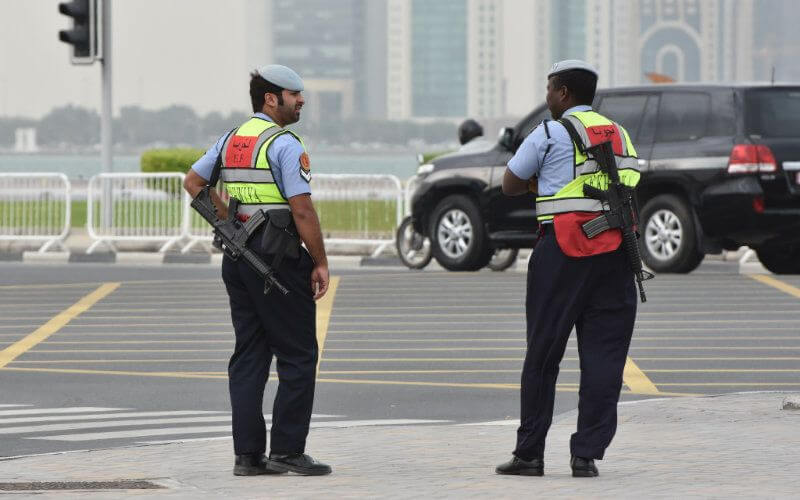Qatar Slashes Moroccan Police Salaries by 30%, Sparking Controversy

In Qatar, Moroccan-origin agents working for the Ministry of the Interior have seen their salaries cut by 30%. This discriminatory treatment by the Qatari authorities towards foreigners is strongly criticized internationally.
Hundreds of Moroccans (estimated at 1,800) recruited in Qatar for the police and security, particularly in the field of surveillance, as part of the preparations for the 2022 World Cup, did not hide their anger after finding that their meager salaries had been cut by 30%, reports Hespress.
While a Qatari policeman earns 18,000 riyals (almost 48,000 Moroccan dirhams) and 22,000 riyals (about 59,000 dirhams) if he is married, not to mention social benefits, Moroccan policemen, on the other hand, receive 6,000 to 7,500 riyals (about 16,000 to 20,000 dirhams). And this already low salary has just been reduced to 1,800 riyals, or 5,000 dirhams.
"We live in oppression and slavery and no one talks about us. You just have to have a minor problem with a Qatari at work to be threatened with expulsion," denounces a Moroccan quoted by the site.
Furthermore, the law in Qatar does not allow any promotion of rank for foreign police officers. "Even at 60 years of service, you will receive the same salary, at the same rank," laments a Moroccan policeman in Qatar.
Faced with this injustice, the Moroccans are calling for the intervention of the authorities of the kingdom through the embassy in Doha so that their rights are guaranteed in Qatar.
In the wake of this, the Qatari ministry refused to receive a committee of Moroccans who wanted to know if this salary reduction was temporary, due to the health crisis, or permanent.
Qatar, a rich country with significant resources, is known to be a poor student when it comes to human rights. In the world of work, inequalities are flagrant. Moroccan workers, for example, in addition to being poorly paid, are not entitled to residence permits.
Related Articles
-

Morocco Cracks Down on Illegal Construction: Major Cities Face Scrutiny Amid Urban Planning Scandal
6 September 2025
-

Moroccan Police Bust International Phone Theft Ring: France-Morocco Sting Recovers Stolen Devices
6 September 2025
-

US Reaffirms Support for Moroccan Sovereignty in Western Sahara Dispute
6 September 2025
-

Severe Weather Alert: Moroccan Regions Brace for Intense Thunderstorms and Heavy Rainfall
6 September 2025
-

Quebec’s International Student Crisis: UQAM Faces 39% Drop as Government Policies Spark Global Concern
5 September 2025